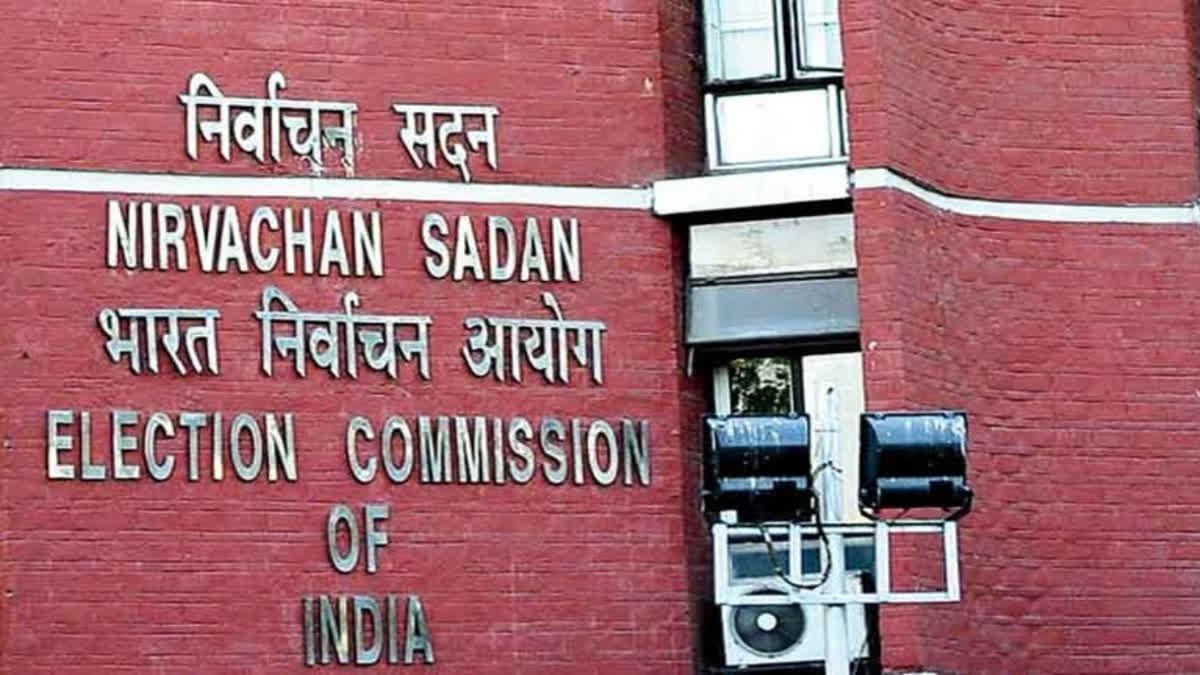Hyderabad: Elections for the Legislative Assemblies of Telangana, Madhya Pradesh, Rajasthan, Chhattisgarh and Mizoram are approaching, and the Election Commission (EC) has reaffirmed its commitment to ensuring a fair and transparent electoral process. Central Election Commissioner (CEC) Rajeev Kumar has emphasised the need for candidates to disclose their criminal records through press releases.
Furthermore, the CEC has proposed that political parties provide explanations for nominating individuals with criminal convictions, urging accountability in candidate selection. A disheartening trend has been on a steady rise in Indian politics where a significant number of politicians have criminal charges pending against them.
A recent examination of the election certificates of 763 Rajya Sabha (RS) and Lok Sabha (LS) MPs by the Association for Democratic Reforms (ADR) revealed that 40% of them, or 306 individuals, face criminal allegations. Among them, 194 are confronted with serious criminal charges. This alarming statistic highlights a troubling aspect of Indian democracy.
Over the years, the number of lawmakers with criminal backgrounds has been on the rise, with 233 MPs elected in 2019 having criminal records compared to 128 in 2004. Shockingly, nearly 44% of the country's nearly 4,000 lawmakers have questionable backgrounds. This disconcerting reality raises concerns about the quality of representation in our legislatures, as individuals accused of crimes ranging from murder to corruption are being entrusted with the responsibility of shaping India's destiny.
The erosion of people's faith in democracy poses a grave threat to the prestige of legislatures, ultimately paving the way for anarchy and the rise of authoritarianism. Presently, India finds itself confronting this very peril, as individuals with criminal backgrounds continue to wield power within the political landscape. The existing mechanism for disqualifying politicians solely based on proven criminal charges and convictions has proven to be ineffective in weeding out those who tarnish the sanctity of our democratic institutions.
To address this issue, the Law Commission has recommended a stringent measure--the disqualification of leaders facing criminal charges punishable by more than five years of imprisonment after rigorous judicial scrutiny at the stage of charges being registered--implementing this recommendation is paramount, but safeguards must be established to prevent its misuse for political vendettas, ensuring a fair and transparent process for barring criminals from serving in legislatures.
However, the malaise affecting our electoral system extends beyond criminal politics. Money politics, often characterised as vote buying, stands out as a cancerous influence on our democratic process. The Election Commission hasn’t mentioned it explicitly, but vote buying is a reprehensible crime that undermines the very foundation of our democracy.
All political parties, regardless of differences, appear to tacitly condone this grave transgression by engaging in vote-buying practices. The consequences of this culture are far-reaching, as the votes procured through financial inducements wield significant influence over the direction of our nation. For the sake of the country and its citizens, it is incumbent upon political parties to unite and staunch the flow of black money into elections, effectively sounding the death knell for the pernicious culture wherein only the affluent can represent the people. National and regional parties, especially, must demonstrate sincerity in their commitment to curbing this malpractice. Failure to do so will render the sanctity of our electoral process nothing more than an empty facade, hollowed out by corruption from within.
Representatives of the people, who resort to bribery or employ unethical tactics to manipulate public opinion are ill-suited to their roles, the Election Commission (EC) has previously advocated for a more stringent disqualification process, one that would begin promptly upon the filing of charges against leaders accused of such offences.
To transform this vision into reality, an essential step would be amending the Representation of the People Act. Ensuring that promises made to the electorate are upheld also falls squarely on the shoulders of ruling parties. It is disheartening to witness parties inundate the political landscape with lofty promises during election campaigns only to abandon them once in office, betraying the trust of the voters.
The Election Commission has rightly called upon parties to not merely make promises, but to elucidate how they intend to fulfil these commitments. Regrettably, this call often falls on deaf ears, as some political entities remain entrenched in the cycle of empty assurances. To curb the proliferation of false and empty promises, it is imperative to establish new norms.
All political parties should explicitly outline in their manifestos the timeline within which they intend to translate their promises into action should they secure power. Parties that fail to fulfil their commitments within the stipulated timeframe should be compelled to relinquish power. The creation of a distinct legal framework to address this issue is paramount.
It is crucial to dispel the entrenched belief among political parties that winning an election grants them carte blanche authority once in power. Only by eliminating this notion can we put an end to the toxic politics that harm the very people they are meant to serve. True democracy can only thrive when the electorate's trust is upheld, and their voices are genuinely represented. (Eenadu editorial published on October 3)



